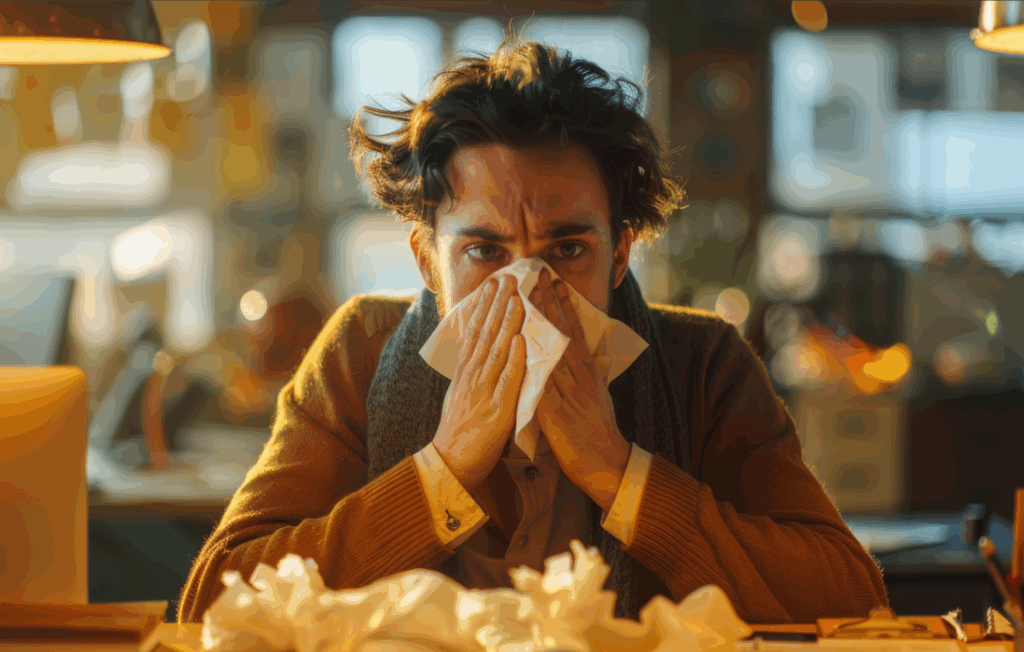That awkward moment when you catch someone subtly stepping back during conversation – we’ve all been there.
You’re religious about your oral hygiene routine. Two minutes, twice a day, just like your dentist recommended. You’ve got the fancy electric toothbrush, the whitening toothpaste, maybe even that trendy charcoal version you saw on Instagram. Yet somehow, you still find yourself doing the “breath check” into your cupped palm more often than you’d like to admit.
If this sounds familiar, you’re definitely not alone. Despite what those minty-fresh commercials suggest, brushing your teeth – even perfectly – might not be addressing the root causes of persistent bad breath. Let’s dive into what could be going on and explore some practical lifestyle adjustments that many people find helpful.
The Hidden Culprits Behind Stubborn Bad Breath
Your Tongue is Getting Neglected
Here’s something most of us learned way too late: your tongue harbors more bacteria than the rest of your mouth combined. Think of it like a shag carpet that’s been collecting microscopic debris all day. Those tiny bumps and grooves (called papillae) are perfect hiding spots for food particles and bacteria.
Many people focus intensely on their teeth while completely ignoring their tongue. It’s like deep-cleaning your kitchen counters while leaving dirty dishes in the sink – you’re only tackling part of the problem.
What you can try: Gentle tongue scraping or brushing has become increasingly popular. Some people use a dedicated tongue scraper, while others simply use their toothbrush. The key is being gentle – your tongue tissue is delicate.
You’re Skipping the Spaces Between
Flossing often feels like that chore you know you should do but somehow always forget. Yet the spaces between your teeth are prime real estate for bacteria and food particles. When these hang around, they can create some pretty unpleasant odors.
Think about it this way: if you only cleaned the visible surfaces of your dishes and left food stuck in all the crevices, would you expect them to smell fresh? Your teeth work the same way.
Popular alternatives to traditional floss: Water flossers have gained a huge following, especially among people who find traditional floss awkward or uncomfortable. Interdental brushes are another option that some find easier to use.
Your Mouth is Too Dry
Saliva is like your mouth’s natural cleaning system – it washes away food particles and helps control bacterial growth. When your mouth gets dry, bacteria can multiply more freely, potentially leading to that stale, unpleasant taste and smell.
Several lifestyle factors can contribute to dry mouth:
- Breathing through your mouth (especially during sleep)
- Certain medications
- Dehydration
- Excessive caffeine or alcohol consumption
- Stress
Hydration habits that help: Many people find that sipping water throughout the day makes a noticeable difference. Some also chew sugar-free gum to stimulate saliva production, though results vary from person to person.
You’re Fighting Yesterday’s Dinner
Some foods are notorious for lingering on your breath long after the meal is over. Garlic, onions, and certain spices contain sulfur compounds that get absorbed into your bloodstream and eventually make their way to your lungs, where they’re exhaled.
This means that even perfect oral hygiene won’t completely eliminate these odors – they’re literally coming from inside your body. The good news? This type of bad breath is temporary and will fade as your body processes these compounds.
Foods that commonly cause lingering odors:
- Garlic and onions (the obvious culprits)
- Strong spices like curry or cumin
- Tuna and other canned fish
- Coffee (especially on an empty stomach)
- Alcohol
Your Eating Schedule Might Be Working Against You
Going long periods without eating can sometimes lead to what people call “hunger breath.” When your stomach is empty for extended periods, your body may produce certain compounds that can affect your breath.
Additionally, crash dieting or very low-carb eating plans can sometimes produce a distinctive breath odor as your body shifts into different metabolic states.
Lifestyle Tweaks That Many People Find Helpful
The Timing of Your Routine Matters
Most of us brush right after waking up and before bed, but the timing of your other meals and drinks can make a difference. For instance, drinking coffee immediately after brushing might not be ideal, as coffee can contribute to dry mouth and bacteria growth.
Some people experiment with brushing after breakfast instead of before, especially if they’re coffee drinkers. Others find that a quick rinse with water after meals helps remove food particles before they settle in.
Stay Consistently Hydrated
This one sounds obvious, but it’s worth emphasizing. Chronic mild dehydration is incredibly common, especially among busy professionals who forget to drink water throughout the day.
Simple hydration strategies that work for many:
- Keep a water bottle at your desk
- Set phone reminders to drink water
- Eat water-rich foods like cucumber, watermelon, and lettuce
- Limit diuretic beverages like excessive coffee or alcohol
Consider Your Overall Lifestyle Patterns
Stress, poor sleep, and irregular eating patterns can all potentially impact your oral environment. While these connections aren’t always obvious, many people notice improvements in their breath (and overall well-being) when they address these broader lifestyle factors.
Stress management techniques people often try:
- Regular exercise (even just walking)
- Adequate sleep (7-9 hours for most adults)
- Meditation or deep breathing exercises
- Reducing caffeine intake, especially later in the day
Pay Attention to Patterns
Start noticing when your bad breath seems worse. Is it after certain meals? When you’re stressed? First thing in the morning? During your monthly cycle? After taking certain medications?
Keeping a simple log for a week or two can help you identify patterns you might not have noticed otherwise. This information can be incredibly valuable when discussing the issue with healthcare professionals.
When Lifestyle Changes Aren’t Enough
Sometimes, persistent bad breath despite excellent oral hygiene and lifestyle modifications might indicate something that requires professional attention. This could include:
- Dental issues like gum problems or tooth decay
- Sinus or respiratory conditions
- Digestive concerns
- Certain medical conditions
- Medication side effects
If you’ve tried various lifestyle approaches for several weeks without improvement, it’s worth having a conversation with your dentist or healthcare provider. They can help determine if there’s an underlying issue that needs to be addressed.
The Bottom Line
Bad breath despite regular brushing is more common than you might think, and it’s rarely about poor hygiene. Often, it’s about addressing the whole picture – your tongue, the spaces between your teeth, your hydration levels, and your overall lifestyle patterns.
The key is to be patient with yourself as you experiment with different approaches. What works wonderfully for your friend might not be the right solution for you, and that’s completely normal. Focus on making small, sustainable changes rather than trying to overhaul everything at once.
Remember, everyone’s mouth chemistry is different, and what constitutes “normal” varies from person to person. The goal isn’t perfection – it’s finding a routine and lifestyle that helps you feel confident and comfortable in social situations.
Most importantly, don’t let concern about bad breath keep you from engaging with others or speaking up in meetings. While it’s natural to be self-conscious about these things, most people are far more focused on themselves than on analyzing your breath.

Disclaimer: This article is for informational and lifestyle purposes only and should not be considered medical or professional advice. The suggestions provided are general lifestyle tips that some people find helpful, but individual results may vary. If you have persistent concerns about bad breath or oral health, please consult with qualified healthcare professionals such as dentists, physicians, or other appropriate specialists who can provide personalized guidance based on your specific situation. Do not use this information to self-diagnose or delay seeking professional care when needed.
Sources and Further Reading:
- American Dental Association guidelines on oral hygiene
- Mayo Clinic resources on oral health and lifestyle factors
- Journal of Clinical Periodontology research on oral bacteria and breath odor
- Harvard Health Publishing articles on the connection between hydration and oral health



